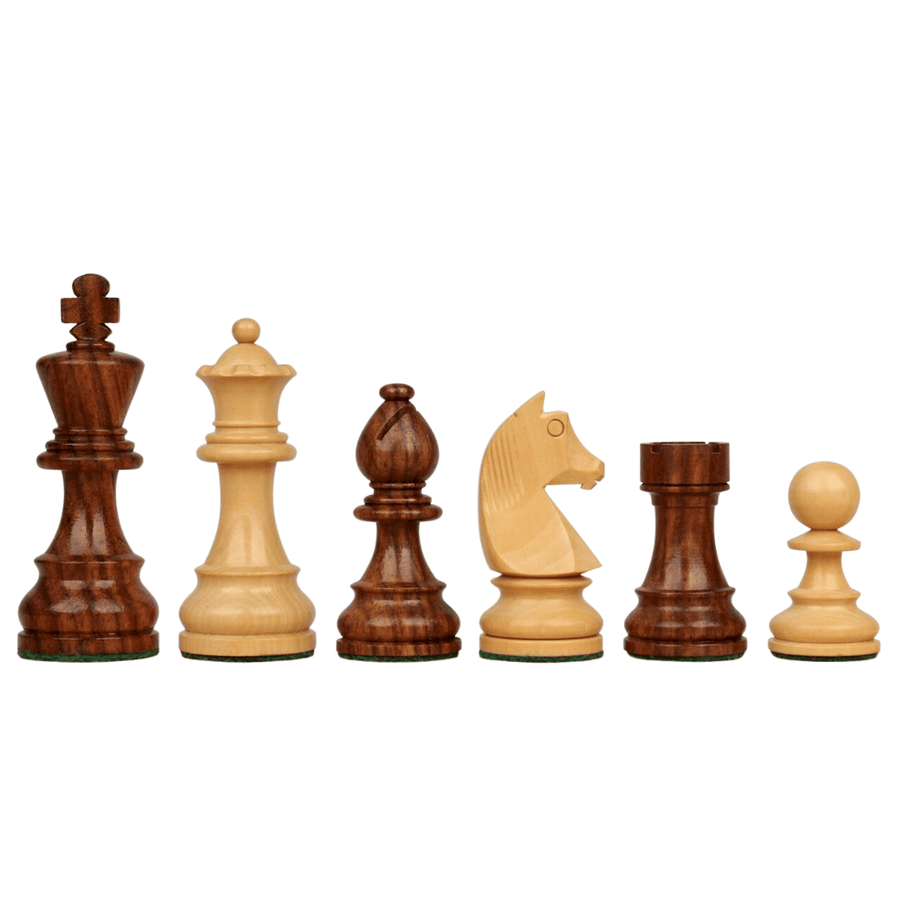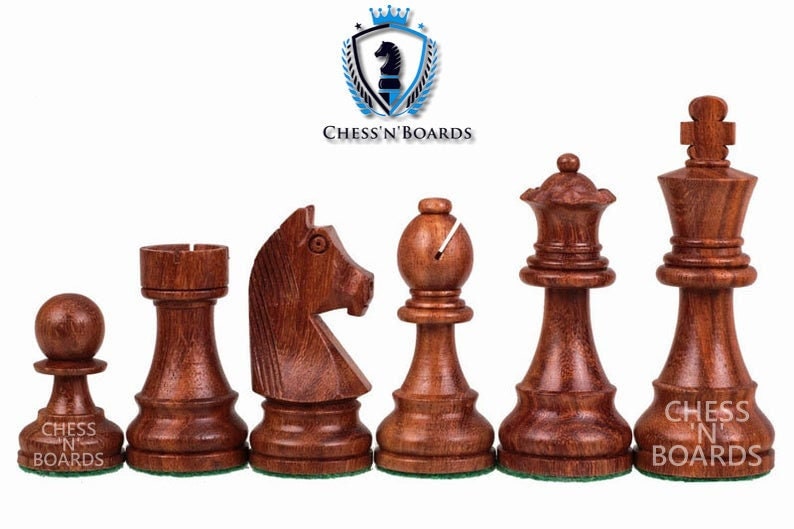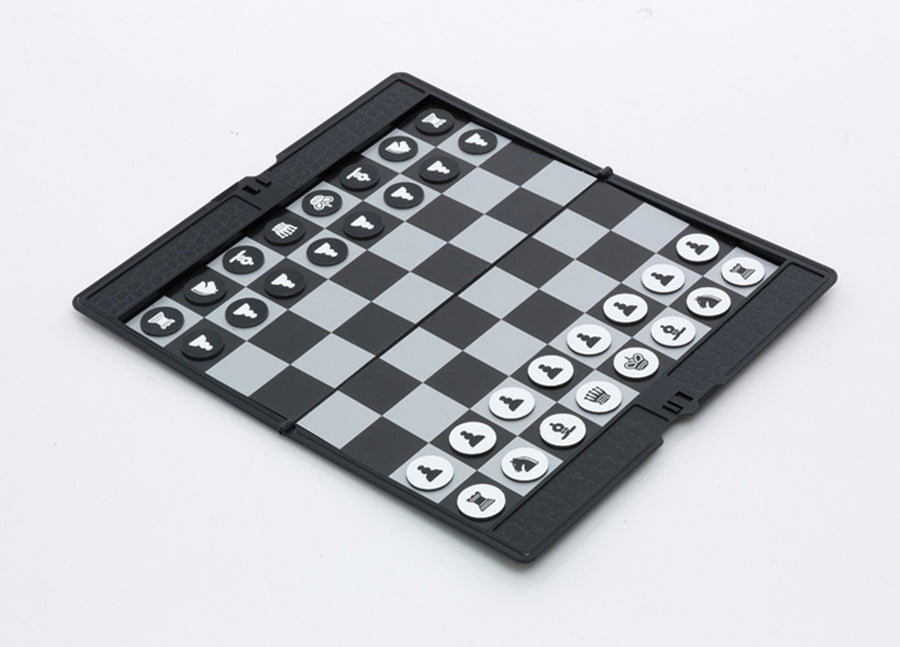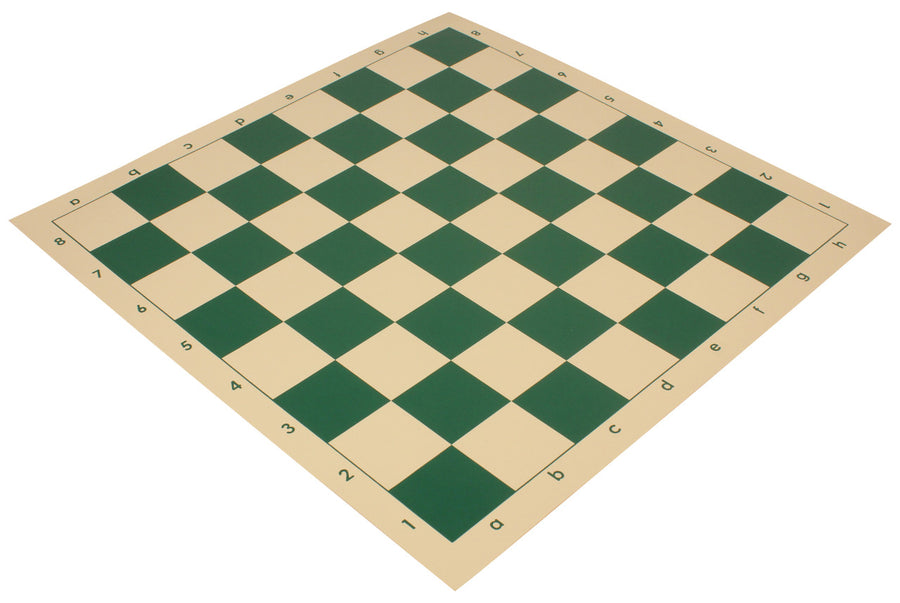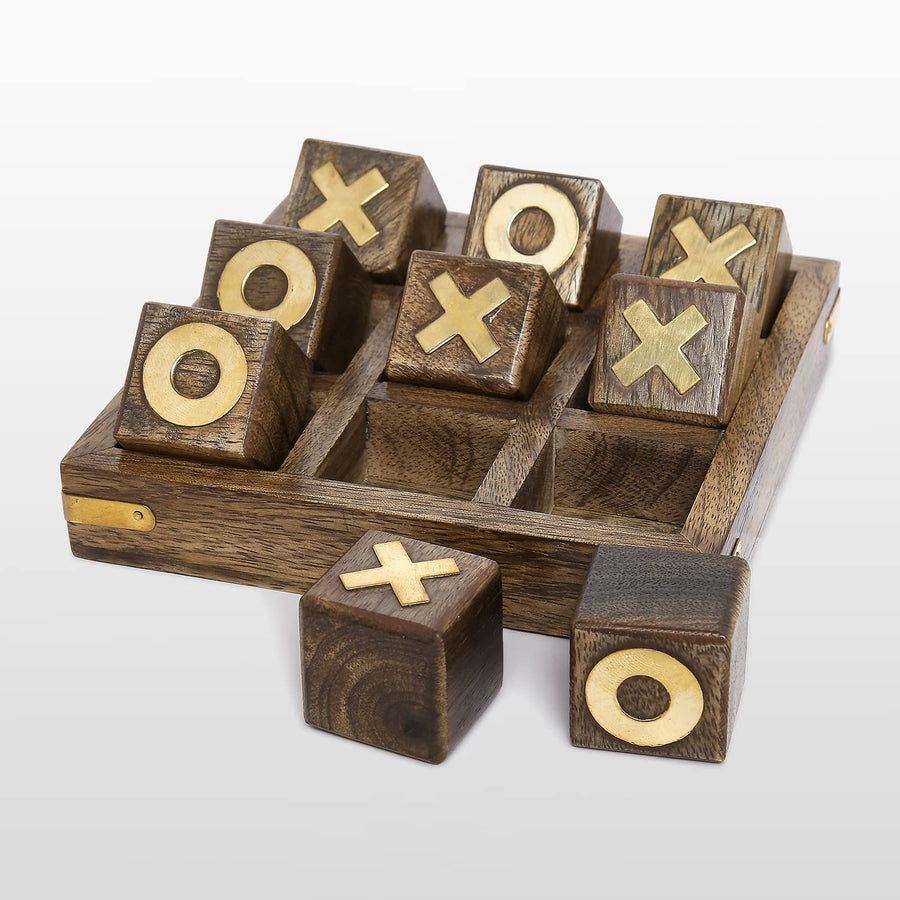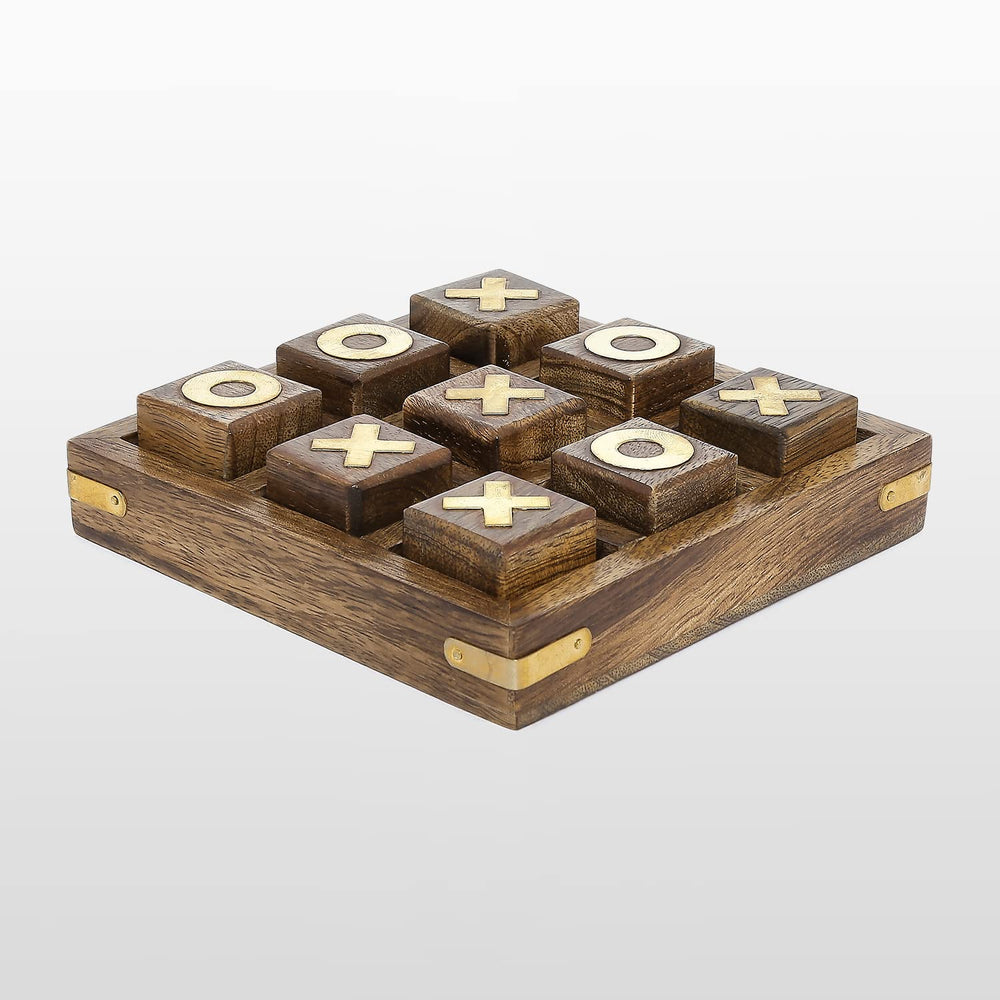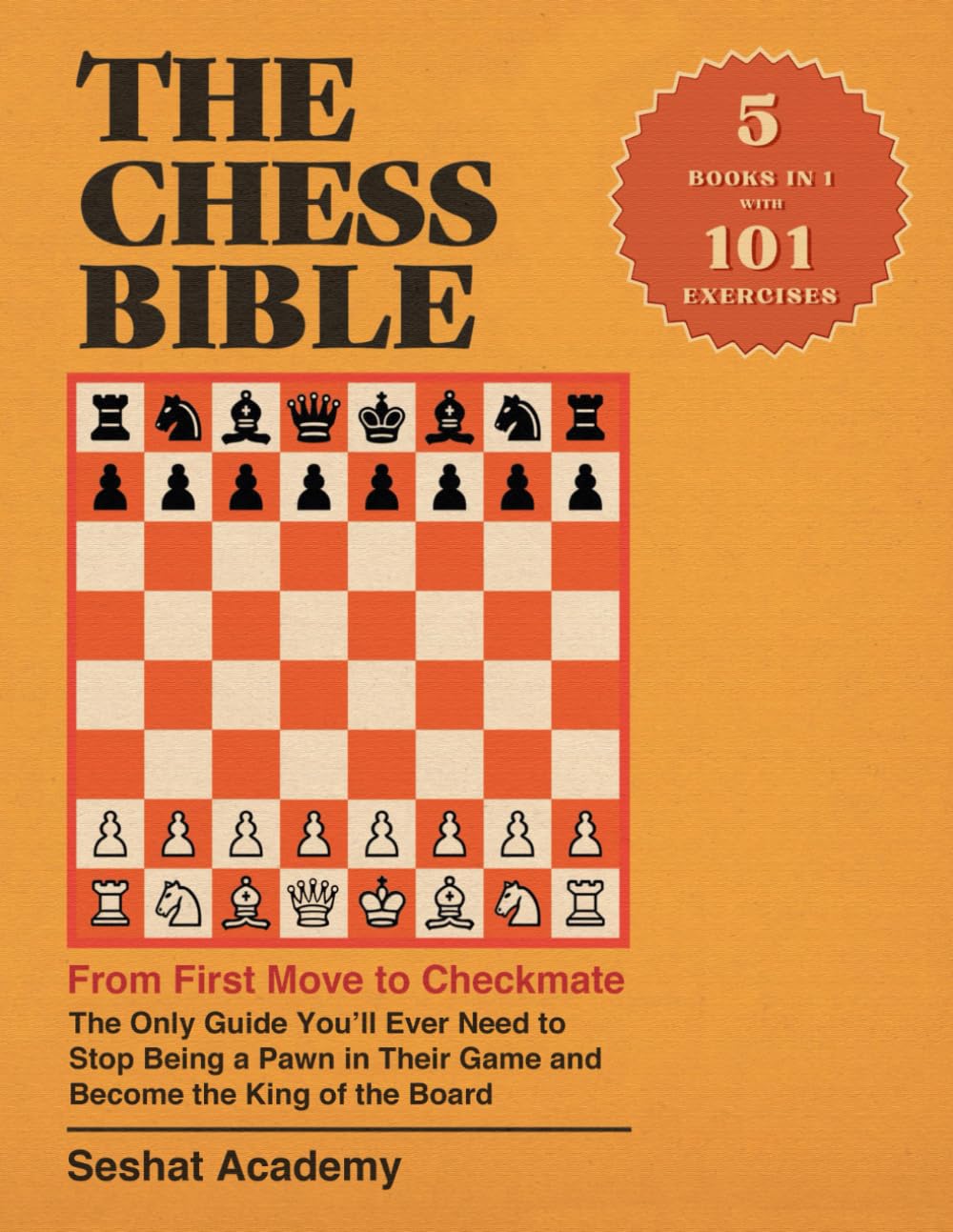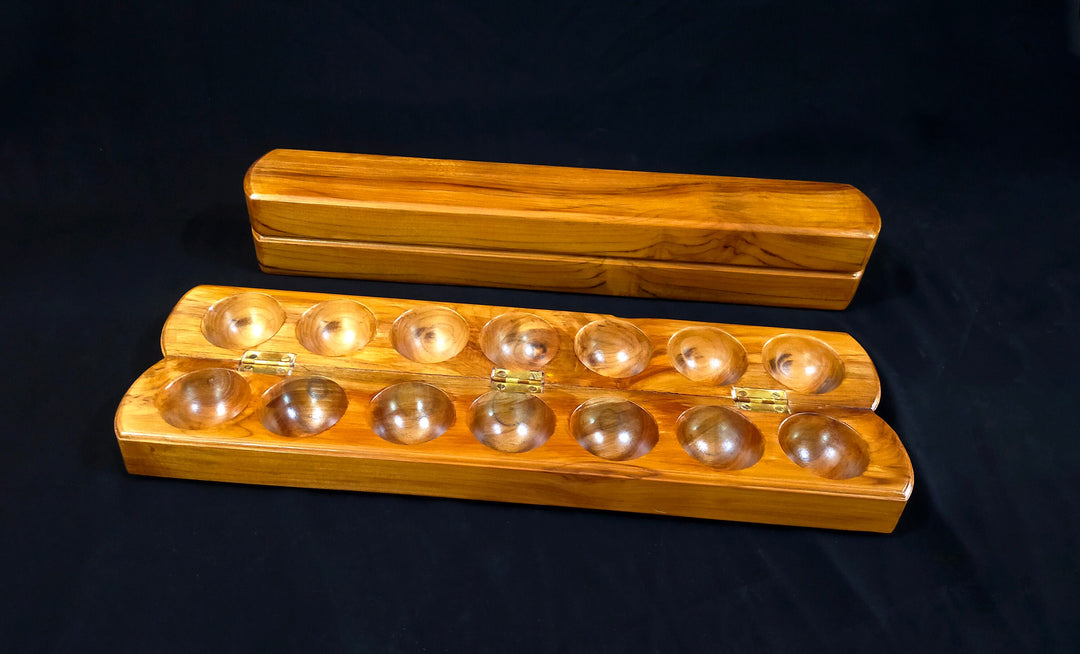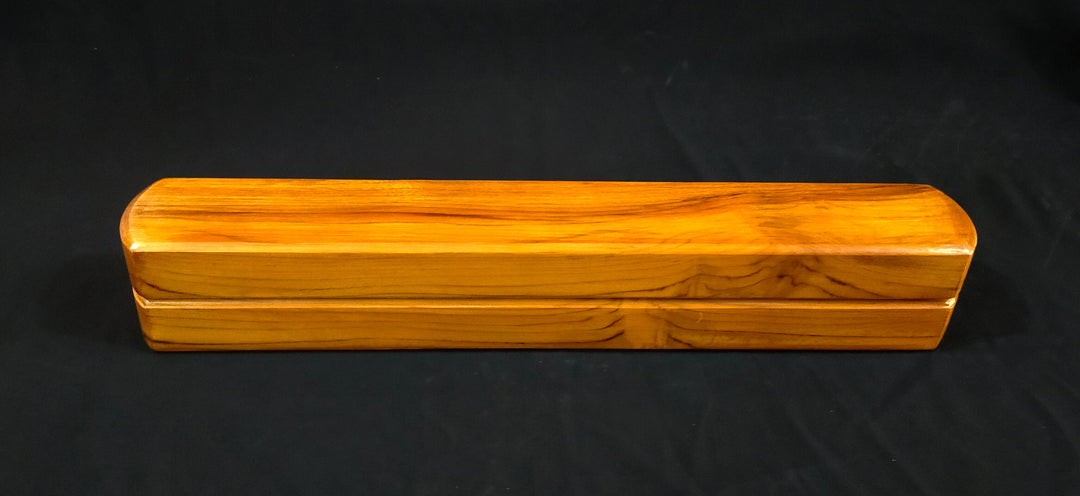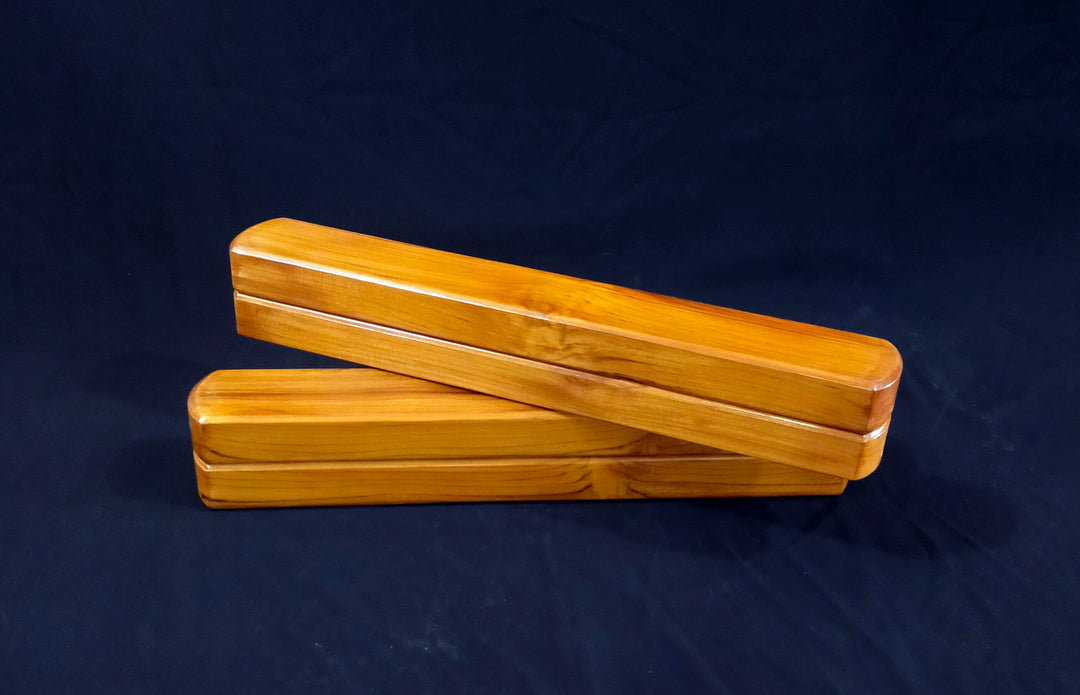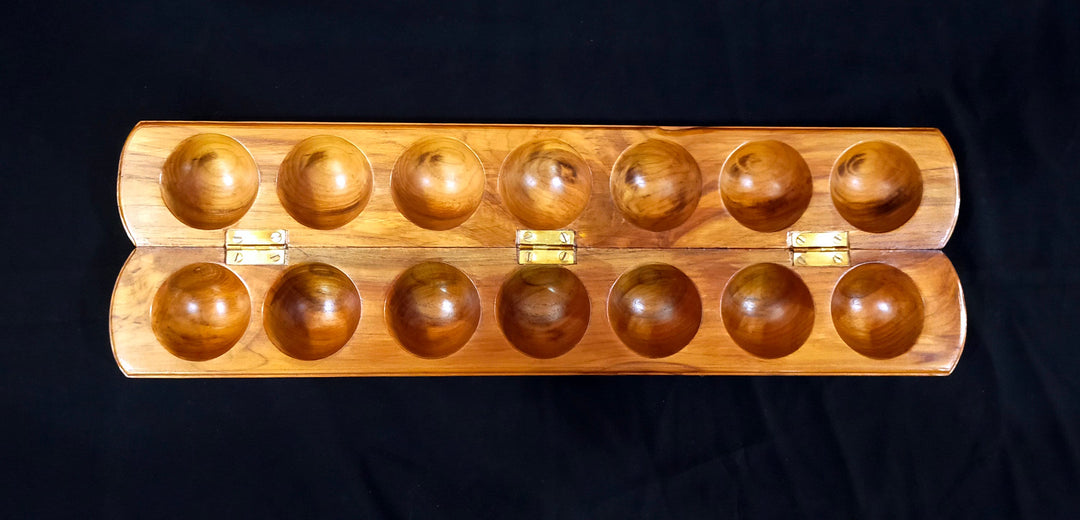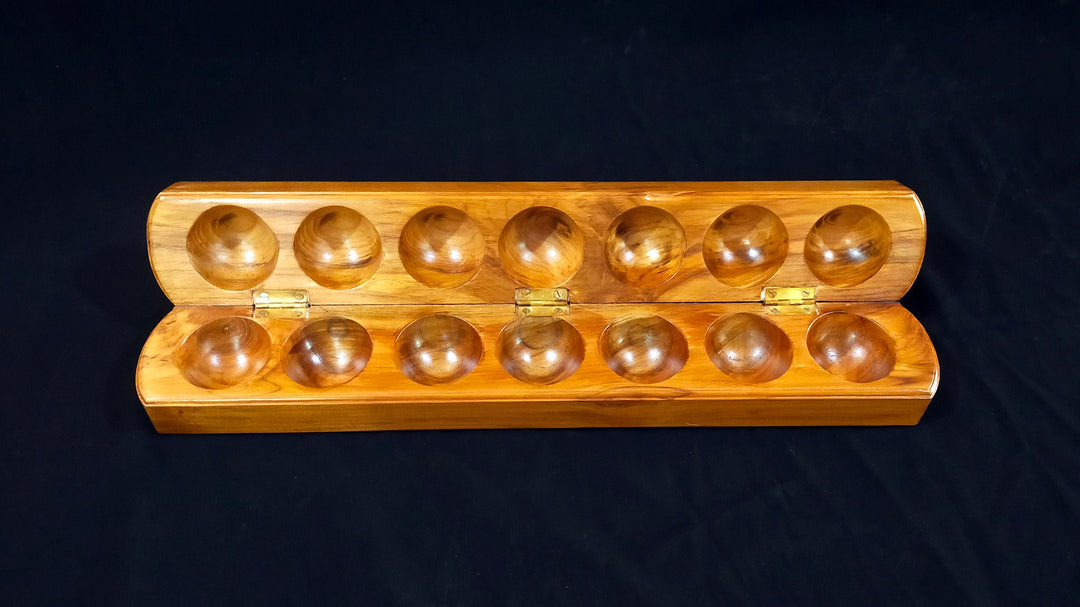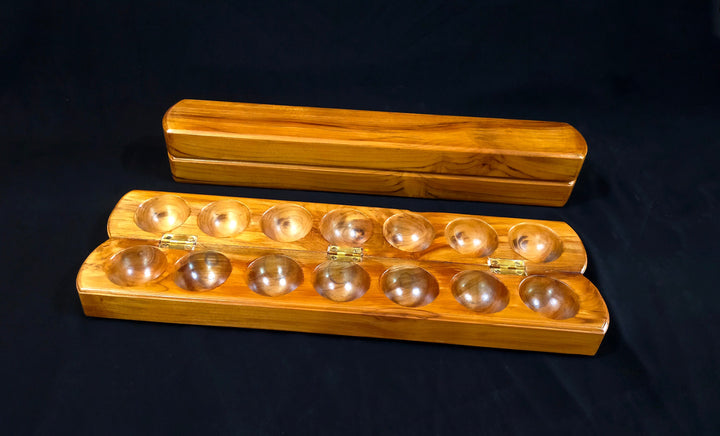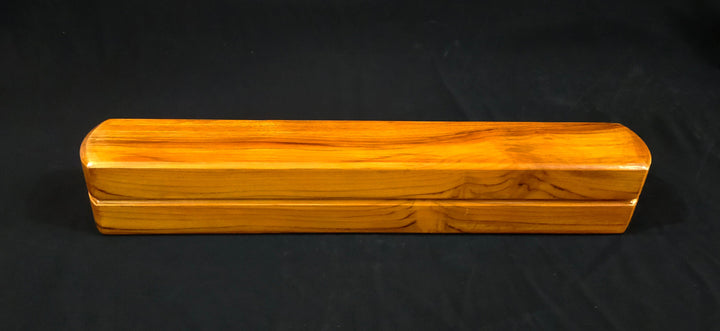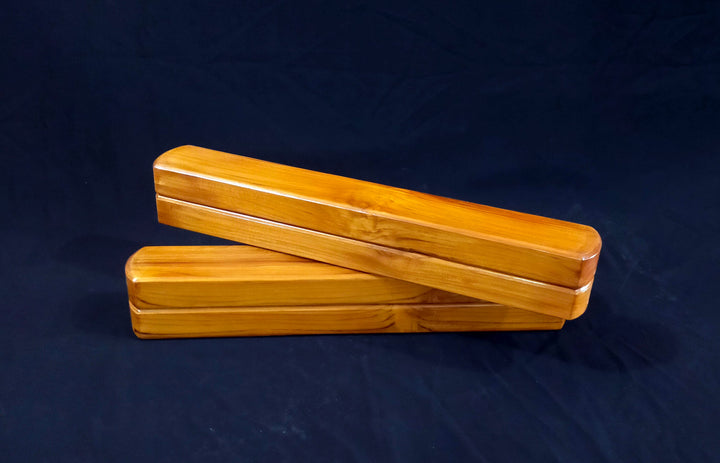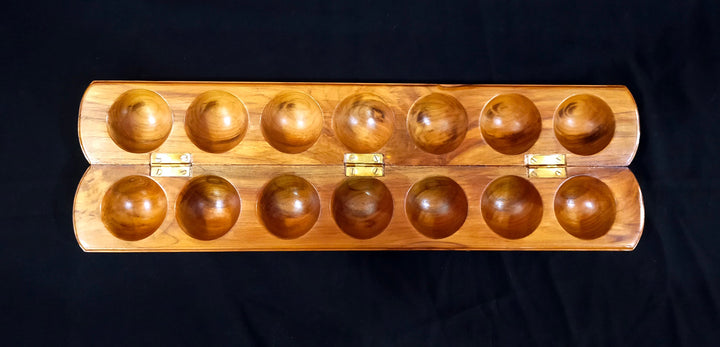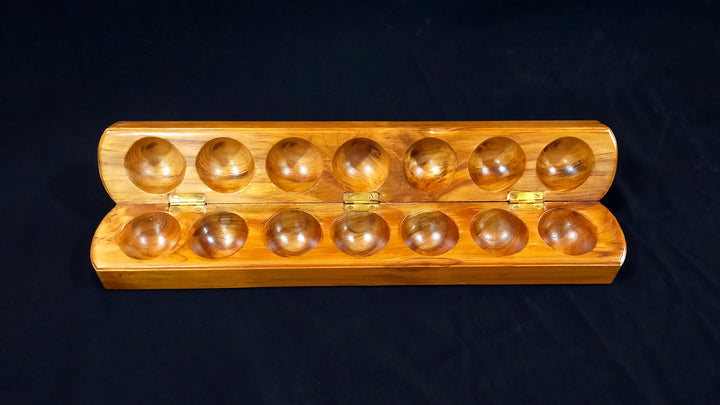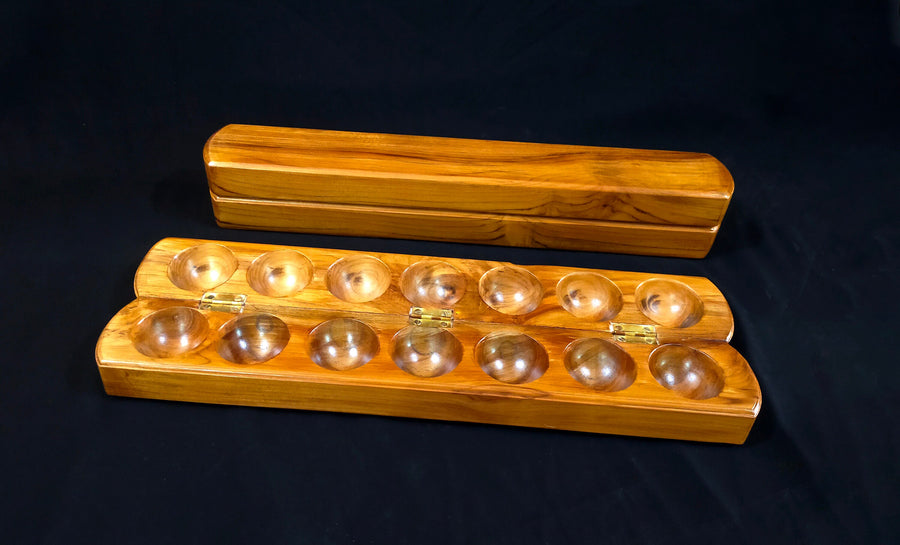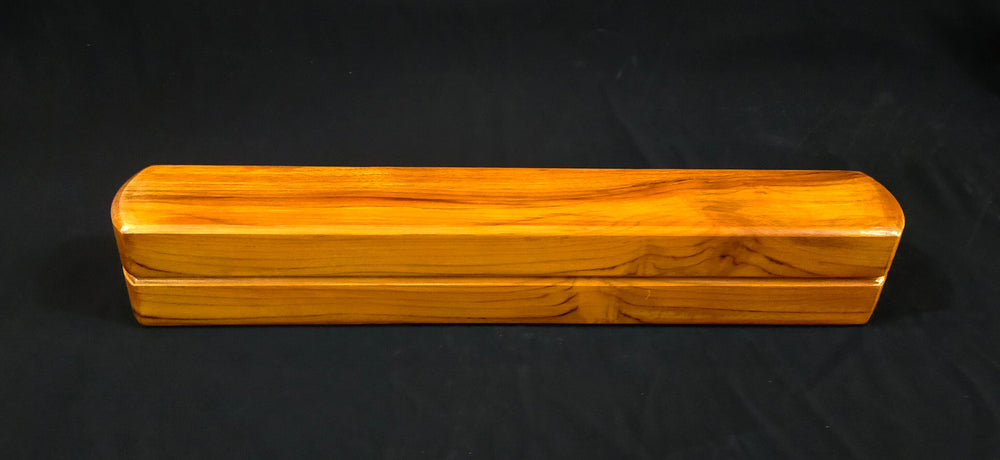Product details
TAMAALA TRADITIONAL GAMES SERIES - ALI GULI MANE
Ali Guli Mane ( Kannada ) is an abstract strategy board game of the Mancala family, originating from Karnataka in South India. The name of the game, like that of many other mancala games across the world, is simply a description of the board used: it means a "wooden block with holes". It is similar to ChenneMane in Tulunadu (Coastal Karnataka), Akal Patta (Northern Karnataka), Vamana Guntalu ( Andhra Pradesh), Kuzhipara (in Kerala), and Pallanguzhi (Tamil Nadu) from the neighboring regions. There are also similarities with the traditional Indonesian Mancala game Congkak, Chonka (Srilanka ), and many, many more.
The game develops logic, hand-eye coordination, and concentration and improves mental math.
PS - Mancala is a generic name for two-player turn-based strategy board games.
CONTENTS:
One foldable Teakwood game board made from wood sourced from renewable forests in Ramanagara by our Channapatna craftspeople
HOW TO SET UP
1. Ali Guli Mane is played on a board with 14 large play spaces, 7 in front of each player.
2. Ali Guli Mane requires 90 shells.
3. 7 shells are placed in each space.
4. Players decide who begins the game by rolling a die.
HOW TO PLAY
We have 2 suggested versions for play - however, grandparents may have more, and they are, after all, the original experts!
VERSION 1
1. In turns, a player picks up all the shells from any of the spaces on their side of the board and redistributes them 1 shell per space in either a clockwise or counter-clockwise direction, including onto spaces on their opponent’s side.
2. Captures happen when the empty play space next to the last shell is redistributed. The player captures all the shells in the space after the space, and all the shells in the space opposite the space shells were captured from.
3. If a capture cannot be made, the same player starts redistributing shells from the next play space and continues in the same direction.
4. If upon completing the next play space is empty, the player can capture all the shells in the space after the empty space, and all the shells in the space opposite the space shells were captured from.
5. After the second redistribution, the turn is over regardless of whether a player has made a capture or not.
6. Play continues until all the shells have been captured.
To win the game, a player must have captured the most shells.
VERSION 2 :
On his turn, a player picks up the counters of one of his holes and distributes them into the following holes one by one anti-clockwise.
After the last counter was dropped into a hole, the contents of the following hole are distributed in another lap as usual in India.
The move ends when the following hole is empty. This is called "Saada".
If the hole was empty, the player captures the contents of any of the succeeding hole. In addition, he captures the contents of the hole opposite to that hole.
Each turn a player may move twice if he captures in his first move. Then his term ends after two "saadas".
A player must move only if he has something to play with.
The game is finished when all counters are taken.
The player who has collected the most counters wins the game.
In the next round, each player tries to fill his holes with five counters from his winnings. These holes which cannot be filled are marked with a pebble or a twig and are avoided for further play. The match is continued until one player cannot fill even one hole.


